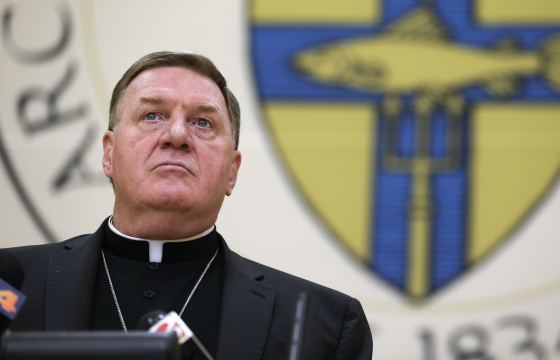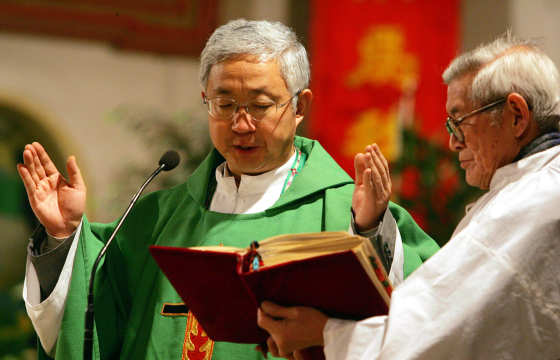As the Holy See edges close to a diplomatic breakthrough with Beijing with agreement on the appointment of bishops in the state-run church, the Vatican this week denounced illicit episcopal ordinations in China’s underground Catholic community.
On Monday a statement from Greg Burke, Director of the Holy See Press Office, made clear any bishop in the unofficial Catholic Community ordained without papal approval “would constitute a grave violation” of Church law.
He was responding to a “series of reports” that priests had been ordained bishops without Rome’s mandate: in September Fr Dong Guanhua announced his ordination and offered to ordain others without the Pope’s mandate.
The appointment of bishops is the major sticking point in relations between China and the Holy See - which were severed back in 1951 - with Beijing naming leaders of the state-run Catholic Church while its underground counterpart staying loyal to the Pope.
Now, however, the Holy See is on the verge of a compromise with China on the bishop appointments with the Pope mulling a deal where he would accept eight bishops ordained by the country’s state Church. If he agrees, and Beijing in turn accept, it would be a major diplomatic coup for Francis who has eagerly pursued an opening to China, something that eluded his predecessors.
But the deal is being vigorously opposed by Hong Kong Cardinal Joseph Zen: the 84-year-old is the elder statesman of Chinese Catholicism and believes any compromise with Beijing is a mistake that would undermine the Church’s mission to the communist country.
“Pope Francis has no real knowledge of communism,” the cardinal told The Wall Street Journal, adding the Argentinian pontiff’s background meant he had a blind spot in this area.
“So the Holy Father knew the persecuted communists, not the communist persecutors. He knew the communists killed by the government, not the communist governments who killed thousands and hundreds of thousands of people.”
Since the 1950s the state-run Chinese Catholic Patriotic Association in their place has overseen the “official church” in China consisting of 70 bishops and five million adherents who report to Beijing. By contrast the underground church follows the pope and is loyal to Rome: as a result its 30 bishops and estimated seven million adherents face harassment and imprisonment.
The naming of bishops by the Pope is fundamental to Catholic teaching as Benedict XVI pointed out in 2007: “The authority of the Pope to appoint bishops is given to the Church by its founder Jesus Christ. It is not the property of the Pope, neither can the Pope give it to others.”
In the past, however, Vatican diplomats have operated a policy of co-operation with communist countries in Eastern Europe - known as “Ostpolitik” - such as in Poland whereby the regime had vetoing powers over candidates. Ironically, communist officials pushed forward the candidacy of Karol Wojtyla as the Archbishop of Krakow - later, as Pope John Paul II, he was credited with helping to end soviet-era communism.




 Loading ...
Loading ...